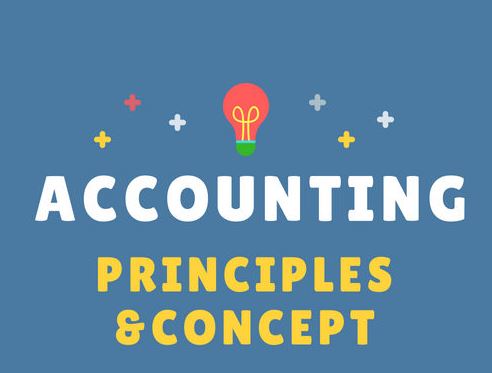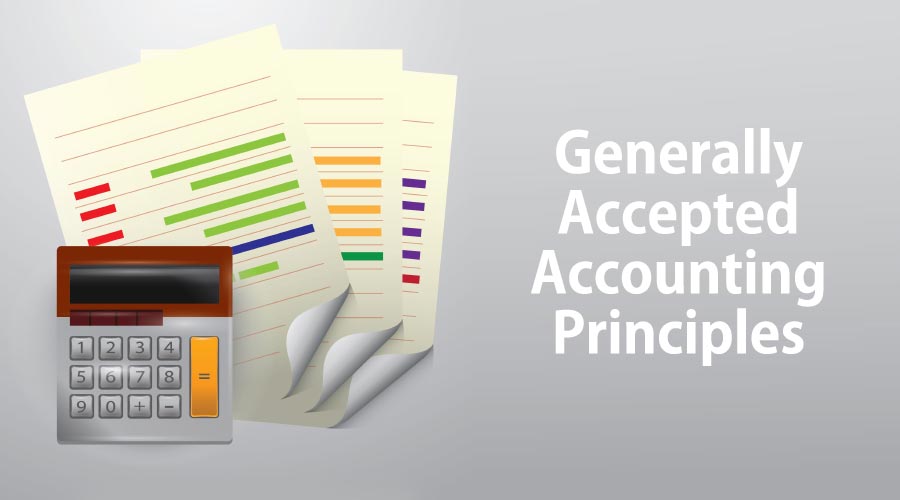There are various rules as well as concepts, which govern the field of accounting. There are some basic and general rules, which have been referred to as the basic accounting guidelines as well as principles from groundwork on which more detailed, complicated, as well as legalistic accounting rules are based. For instance, the Financial Accounting Standards Board (FASB) only used the rudimentary accounting principles and guidelines as a good basis for their own comprehensive and wide-ranging set of secretarial standards and rules.
Accounting Principles Concepts:
Nowadays, a lot of people out there opt for the best kind of accounting principles and that is why they need to know about it. So, you can choose this one from the professionals and experts and as a matter of fact, you can also go for the research.
If a firm is distributing the complete monetary statement to people, it has been required to follow usually accepted accounting principles in the proper preparation of those statements. Likewise, if the business’s stock is openly trafficked, then centralized law desires the business’s statements, which are financially stable to be thoroughly checked by some of the independent public auditors.
The Basic Terms:
In addition to that, both of the organization of the firm and also the self-governing accounts must only confirm that monetary statements as well as the connected records to the proper monetary statement have been only ready in accordance with GAAP.
In recent times, just because there are some of the generally accepted accounting principles people can also use the methods and techniques as well. In fact, you can also check the financial statements as well. In fact, there are some of the variations might exist and that is why people also use the proper financial statistics for this industry. Though, these are sometimes complicated for a lot of people, but they can also take the help from the experts and professionals too.
Basic Accounting Principles:
Since GAAP is just originated on a rudimentary accounting principle as well as guidelines, people can just understand GAAP if they comprehend all those accounting principles. You can also ask for the proper accounting principles as well.
-
Economic Entity Assumption
Each and every accountant out there simply keeps each and every proper business transaction of a person proprietorship distinct from the commercial proprietor’s individual transactions. For the legal and legalized purposes, the possession and also the owner are restrained to be one thing, but for clerical drives they are known as the two separate objects.
-
Monetary Unit
If you are opting for the proper monetary or financial unit, then you will have to make sure that you choose the right kind of help. In fact, the assistance also asks you to research about the entire financial and Monetary Unit.
-
Time Period Assumption
This accounting principle shoulders that it is probably take time to report the extremely complex as well as some of the continuing doings and actions of a business in comparatively short, separate time intermissions such as the three months ended. One of the important facts is that, it is a very significant that a time intermission be exposed or revealed in a proper heading of each revenue and financial statement, and then the statement of stockholders’ equity.
-
Cost Principle
From the accountant’s point of view, the term “cost” mainly refers to an amount spent when the item was obtained originally if that acquisition happened few years ago. For some of the important causes, some of the amounts have exposed on the financial statements have been mentioned to as the historical cost amounts. One of the very important things is that you will have to know about the market value and when it comes to the market value, you will have to know the cost principle. To know the financial value well, you can just go for the right kind of professional guidance.
If you simply want to know a current value of the long term assets of the company, you will not be able to get this data and information from the company’s financial statements that you simply need to look everywhere.
-
Full Disclosure
If you are opting for this one, you will have to make sure that you choose the right kind of Full Disclosure. If the certain information and data is important to the saver or creditor utilizing the proper financial statements, that all of the data and information should be revealed within or just right in the notes to the statement. Nowadays, the full disclosures are always there whenever you are going to choose the right kind of accounting principles. As a matter of fact, the proper principles are always needed to be researched.
-
Going Concern Principle
Once you know about the proper accounting principles, you can simply go for the Concern Principle. This is one of the important and a different kind of principle that actually helps people to know about it. As a matter of fact, if you do not have much idea, then you can consult with the experts.
-
Matching Principle
This exact accounting principle wants the businesses to apply the augmented foundation of accounting. The matching principle wants the expenditures must be coordinated along with the incomes. Because persons just cannot extent the upcoming financial benefit of some of the important things such as ads (and thus people cannot simply match the commercial expenditure come along with connected future incomes), the accountant also charges the ads amount to outlay in the period that the ad is run. If you do not have much idea regarding the matching principle or its basic guidelines and principles, you can easily take the help from the professional or experts.
All of those above principles should be measured and known in a certain way and that is why you will have to make sure that you consult with the professional and experts. Eventually, they can also take the help from any of the experts and professionals.








